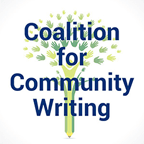Document Type
Article
Abstract
In working class education, one of the primary goals in addition to basic literacy was the formulation of class-based interpretations of society. In the late 19th and early 20th centuries, as literacy programs began to filter into the lives of the proletariat, an attempt to expand the definition of literacy past basic reading and writing skills occasioned the rise of institutions that defined literacy as not only reading and writing, but also knowledge of class and economic theory. Thus, these early proletarian programs developed a broader definition of literacy, past basic reading and writing programs, to class-based educational curriculum.
Recommended Citation
Kaunonen, G.A. “From the Escuela Moderna to the Työväen Opisto: Reading, (W)Riting, and Revolution, the 3 ‘Rs’ of Expanded Proletarian Literacy.” Community Literacy Journal, vol. 5, no. 2, 2011, pp. 1–24, doi:10.25148/clj.5.2.009410.

